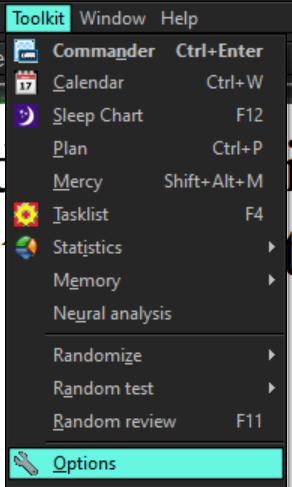Before I started using SuperMemo, I don’t think I was a very studious or motivated person. I didn’t excel very much in school and outside of a few interests, my “character stats” felt pretty average; similar to Doug, the Nickelodeon cartoon character (Who was described as “painfully average” by his creator).I started using SuperMemo after I finished high school (If only I started while I was in school 🤷🏻♂️), and I’m pretty sure it marked a turning point in who I was as a person. I don’t think I owe EVERY positive aspect of my life to SuperMemo, but SuperMemo certainly helped me to cultivate a really productive attitude towards the value of effort.
One thing I love about RPGs is the concept of the experience point. The idea is so appealing; by putting in effort to fight the same monsters over and over, your effort eventually accumulates and makes you into a better person. Even if an action is small, it still is not a waste since you are always progressing forward, towards greater things.
This kind of simple progression system doesn’t exist in real life. Stuff that you learn you eventually forget. Muscles atrophy. Former glory doesn’t guarantee future success. Any excuse for laziness is still just an excuse, but the lack of a meaningful feedback system can easily make learning seem less fun than something like a video game, something that DOES feature a meaningful feedback system. I played Mario 64 for a half an hour and now I have three more stars ⭐️. Can reading a book for 30 minutes give me the same meaningful assessment of my progress?
Anyways, SuperMemo started as a mere tool to memorize foreign language words, but the more I understood how effective it was, I could see exciting implications. If this tool helps me to remember the Japanese word for “one way ticket,” could I also use it to remember other important things?
Long story short: yes. In time i started to notice the entire feedback loop:
“Put forth effort to learn something - make flashcards to remember the things I learned - do my flashcards every day - Success! (Perfect memory)”
This kind of feedback loop is likely present in many other positive habits: exercise, learning to program, playing chess, etc. For me, it was SuperMemo. Once I experienced the long term benefits of this one habit, it becomes more plausible that I could also achieve similarly positive long term benefits in OTHER areas of life.
Eating healthier and exercising, practicing mindfulness, being organized with how I handle household chores, bills or other boring but important things, these are all areas in life that don’t provide immediate positive feedback, but it feels REALLY rewarding when these kinds of things “fall into place.”
Over time SuperMemo became less of a tool for memory and more of a single aspect of a self disciplined lifestyle (Like owning an iPod was the first step into the Apple ecosystem, it becomes easier to buy a Mac, iPhone, iPad, etc.). Eventually I tried to treat other aspects of my life the same way I treated SuperMemo: a thing that is worth doing but doesn’t pay off right away.
I have good days and bad days like anyone else, but having this consistent habit that I always do, it makes it easier to motivate myself to do other stuff even when I’m having an off day.














